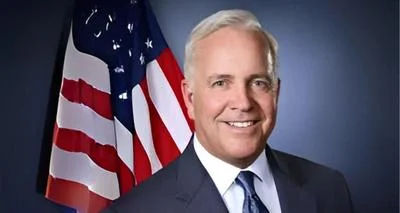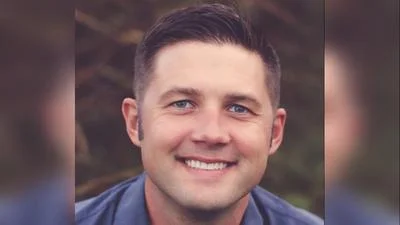Denise Garcia | Denise Garcia
Denise Garcia | Denise Garcia
Lockport resident Denise Garcia has spent the last 17 years homeschooling her seven children.
For her, home education is not just a lifestyle—it's a calling rooted in faith, personal conviction and experience with a system she believes has repeatedly failed her children.
Now, she fears the state of Illinois is on the brink of threatening that freedom.
Garcia is one of the thousands of Illinois parents speaking out against the newly amended House Bill 2827—the Homeschool Act—legislation originally sponsored by State Rep. Terra Costa Howard (D-Glen Ellyn) that has now been dramatically overhauled with what critics call “stealth changes” that significantly expand government oversight of homeschool families.
“This new amendment completely changes everything,” Garcia told the Will County Gazette. “It’s a solution in search of a problem.”
Critics argue the recent amendment to HB2827 significantly expands government authority over homeschooling without sufficient public input, introducing strict deadlines that could penalize families acting in crisis situations like bullying.
Additional concerns center around potential state oversight of homeschool curricula, increased data collection from private schools and provisions that may infringe on family privacy and constitutional rights.
Will Estrada, senior counsel at the Homeschool Legal Defense Association (HSLDA), called the amended bill “a completely new law” cloaked as an amendment.
“Families across Illinois are united by their love for their children and their desire to provide the best education. The state shouldn’t come between them and that right,” he said.
The backlash against HB2827 has been swift and widespread, with over 42,000 witness slips filed in opposition—an extraordinary volume that reflects growing concern about what many see as an unnecessary and punitive response to isolated cases of abuse.
Garcia’s journey into homeschooling began in 2007 after her oldest daughter, then in third grade, began struggling both academically and emotionally.
“She was falling through the cracks,” Garcia said. “I remember it like it was yesterday… My husband looked at the math homework and asked, ‘Has she even learned multiplication yet?’ I said, ‘No.’ And he said, ‘Well, how can she do this?’ I said, ‘Exactly.’”
Garcia made the difficult decision to withdraw her daughter from public school after discovering she was being bullied and felt abandoned by the system.
“She told me, ‘Mom, you were a teacher. Why can’t you teach me?’ And that was a punch in the gut,” she said.
With a background in education—Garcia is a former high school Spanish teacher—she began homeschooling full-time. Within months, her daughter’s academic performance dramatically improved. Garcia says her Catholic faith plays a central role in her decision to homeschool, and she believes HB2827 infringes on her constitutional and religious rights.
“I'm Catholic, and the Church teaches that the parents are the ones responsible for the education and upbringing of their children,” she said. “It is my duty—mine and my husband's—not the state's. So now the state is going to come and impose its will on me? What about the separation of church and state?”
The amendment to HB2827, she argues, grants the state excessive authority to demand sensitive personal data, impose strict withdrawal deadlines—even on families facing crises.Garcia said the amendment would potentially force homeschool co-ops to register as private schools, triggering a cascade of additional legal and financial burdens.
“Now if more than one family gets together to homeschool, that’s a private school? Even if they meet one day a week?” she said. “You’re going to have homeschool families accidentally breaking laws they didn’t even know existed.”
Garcia’s son, who is high-functioning and was simply delayed in speech due to a bilingual household, was once placed in a public preschool program meant for severely disabled children.
The experience left a lasting impact on the family.
“He just needed more time. But they placed him in a classroom with children who were non-verbal, in wheelchairs, and severely autistic. It made no sense. He was stagnating,” she said.
After pulling him from the program and placing him in a private kindergarten setting, Garcia said he thrived almost immediately.
Garcia and many others argue that the Homeschool Act’s driving force—the Coalition for Responsible Home Education (CRHE)—is leveraging isolated abuse cases to justify widespread regulation that targets ordinary families.
Opponents have called CRHE “a pro-authoritarian, pro-government regulation organization” who “are taking it as their mission to roll back homeschool freedom.”
“They’re not about protecting kids. They’re about pushing an agenda,” Garcia said.
She pointed to a study frequently cited by CRHE that claims 47% of homeschooled children in certain cases were abused.
“That study looked at 28 children already in CPS (Chicago Public Schools) cases,” she said. “These weren’t homeschool kids—they were public school kids pulled out by abusers. That’s a failure of DCFS, not homeschooling.”
Notably, a report from the Chicago Public Schools Office of the Inspector General revealed that hundreds of CPS employees were accused of sexually grooming, assaulting and abusing students during the 2021–22 school year, with over 600 allegations and more than half substantiated.
The report detailed disturbing incidents, including teachers and staff members engaging in sexual relationships with minors, sending explicit messages and making predatory advances both in-person and online.






 Alerts Sign-up
Alerts Sign-up